Quick Verdict
Cocoon reminds me a lot of 2012’s Journey. Not in terms of gameplay or art style, but in the way both deliver unique and memorable experiences despite simple gameplay mechanics. Both Journey and Cocoon have basic controls, focusing primarily on character movement and offering limited commands. Like Journey, Cocoon is best experienced when you know as little as possible about the game.
In an era of lengthy game tutorials, Cocoon’s minimalist teaching approach isn’t groundbreaking but is refreshing. The game avoids significant handholding, and its brilliance lies in the satisfaction of piecing together puzzles with minimal guidance. Coupled with a subtly powerful soundtrack and visually stunning environments, Cocoon stands as one of the most unforgettable games of 2023.
Dream Within a Dream
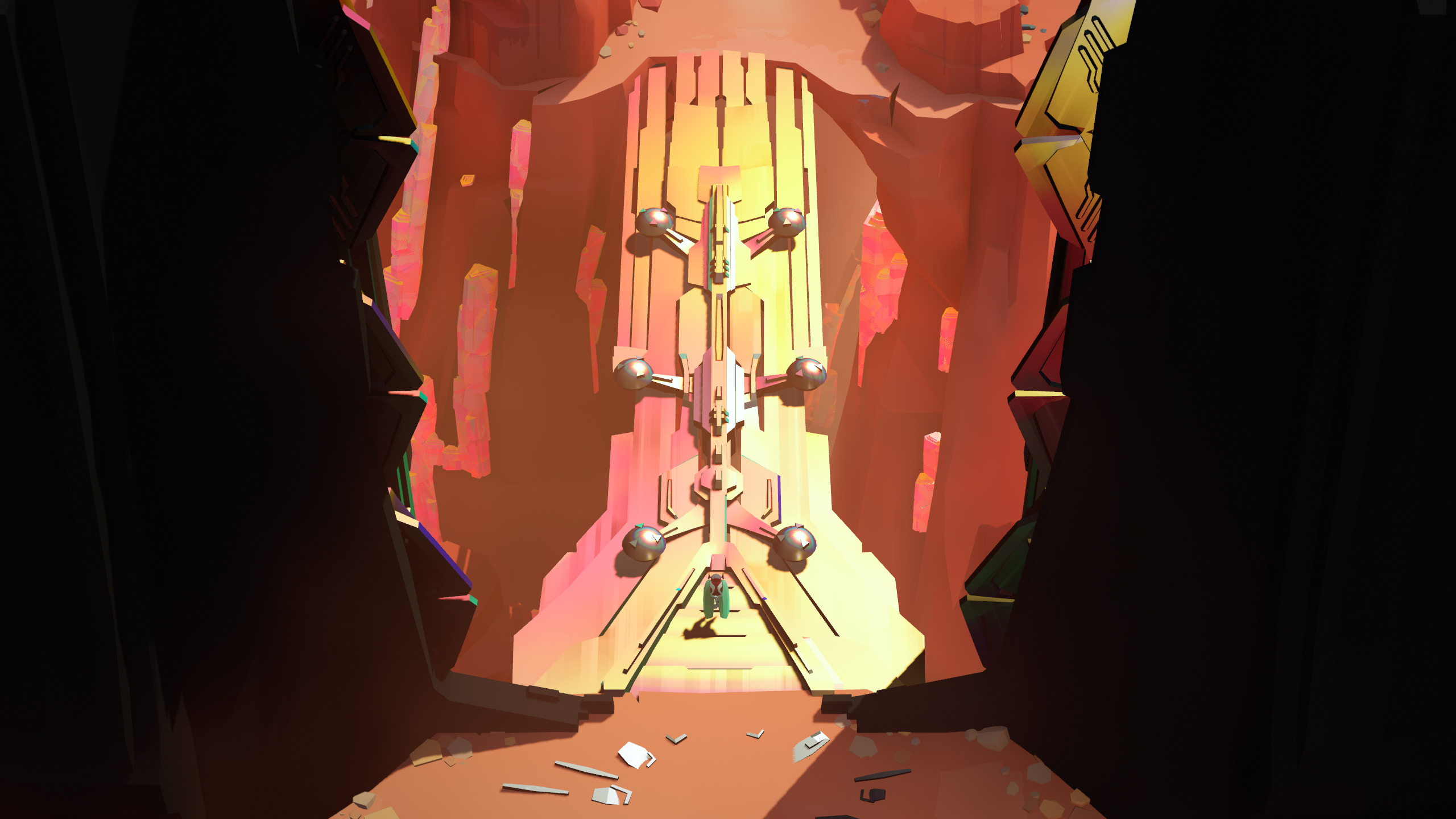
The concept of Cocoon is a simple one: a unique take on the puzzle adventure genre in which each world exists within an orb carried by your character. However, it’s the creative design of the puzzles by Jeppe Carlsen, who was also the lead gameplay designer of Limbo and Inside, that makes Cocoon such a memorable adventure. The game sets the tone right from the start with its lack of dialogue or popup boxes to explain its mechanics. Instead, it leaves it entirely up to you to figure out where to go and what to do, which embraces a sense of delightful freedom.
As with many puzzle games, Cocoon begins with relatively simple challenges. It won’t hold your hand or tell you explicitly what to do, but it will give you minimal guidance, encouraging trial and error. The central gameplay element involves the orbs carried by your character. As you advance, you’ll come across a variety of these orbs, each offering a unique mechanic. For example, the orange orb grants the ability to walk across a path that can only be seen and accessed while holding the orb. Additionally, each orb serves as its own unique world, complete with distinct biomes, themes, and a guardian that serves as a boss battle.
This is, of course, an oversimplification of what Cocoon has to offer. The game’s creativity becomes evident as you access more orbs, creating an almost Inception-like experience. The puzzles progressively get more and more complex, but without a jarring increase in complexity. Cocoon excels in making players feel as though they’ve figured everything out independently, even when solutions are multi-layered. Its approach is akin to LEGOs: starting with basic pieces and building them into a complex masterpiece.
Silken Sounds
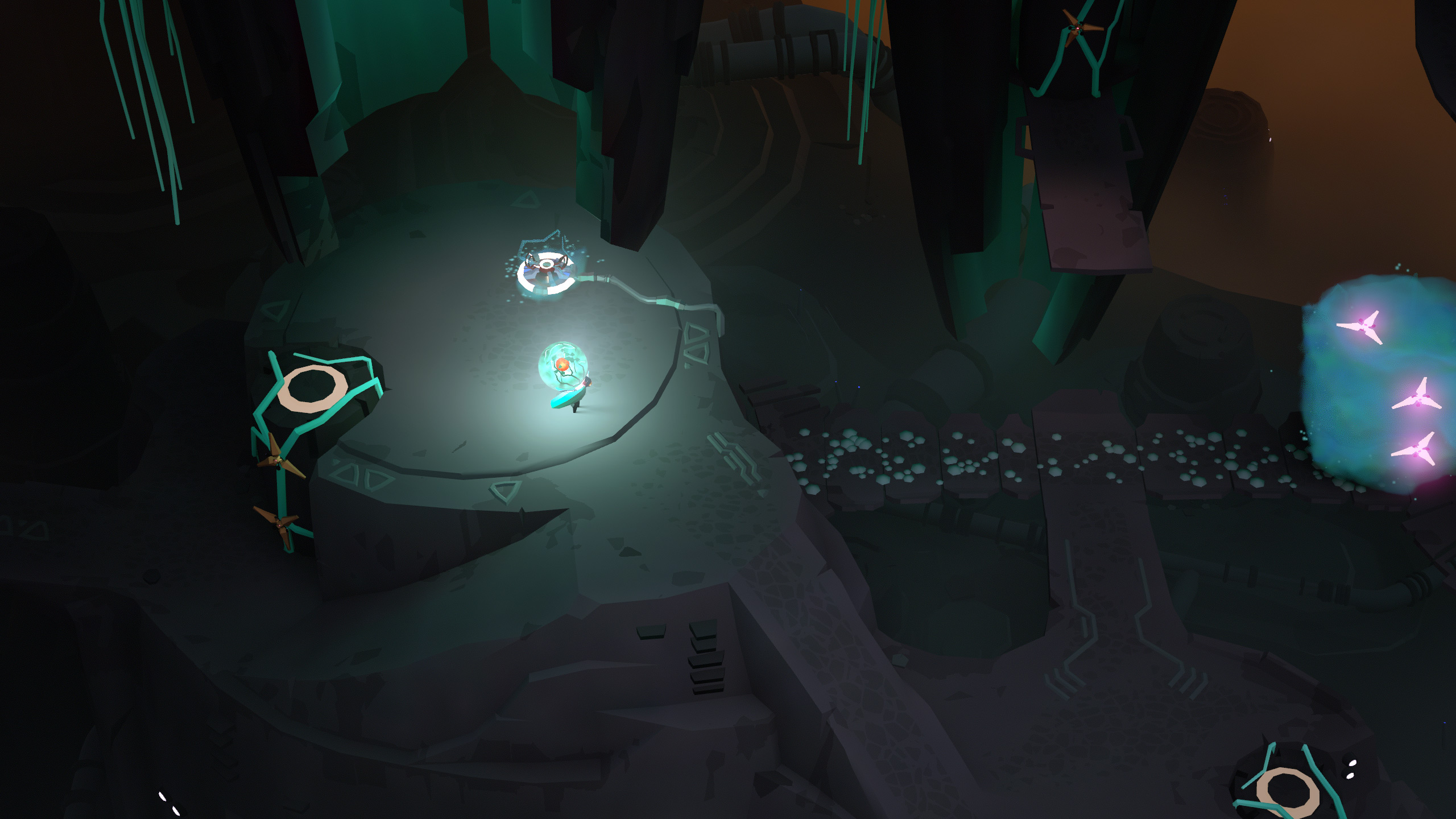
On developer Geometric Interactive’s website, the company states that its games “are designed around unique gameplay ideas, with striking graphics and atmospheric sound created in service of the interactive experience.” In addition to the previously mentioned Jeppe Carlsen, the other co-founder of Geometric Interactive is programmer and composer Jakob Schmid. The influence of both Carlsen and Schmid is evident throughout Cocoon, especially since it’s the studio’s first game.
I mention this because I believe Geometric Interactive actually undersells just how well Cocoon embraces the company’s design mantra. There are understated but brilliantly designed audio cues throughout the game that play when you’re on the right path to solving a puzzle. While not a new concept in gaming, the way these cues are integrated in Cocoon is so subtle that you may not notice them until you realize they serve as a reward for puzzle-solving. At first, you think it’s just background music playing, but as you progress, you’ll realize it’s a celebration of sorts. This feature, combined with a soundtrack that masterfully complements the game’s environments, truly deserves praise.
Visual Symphony
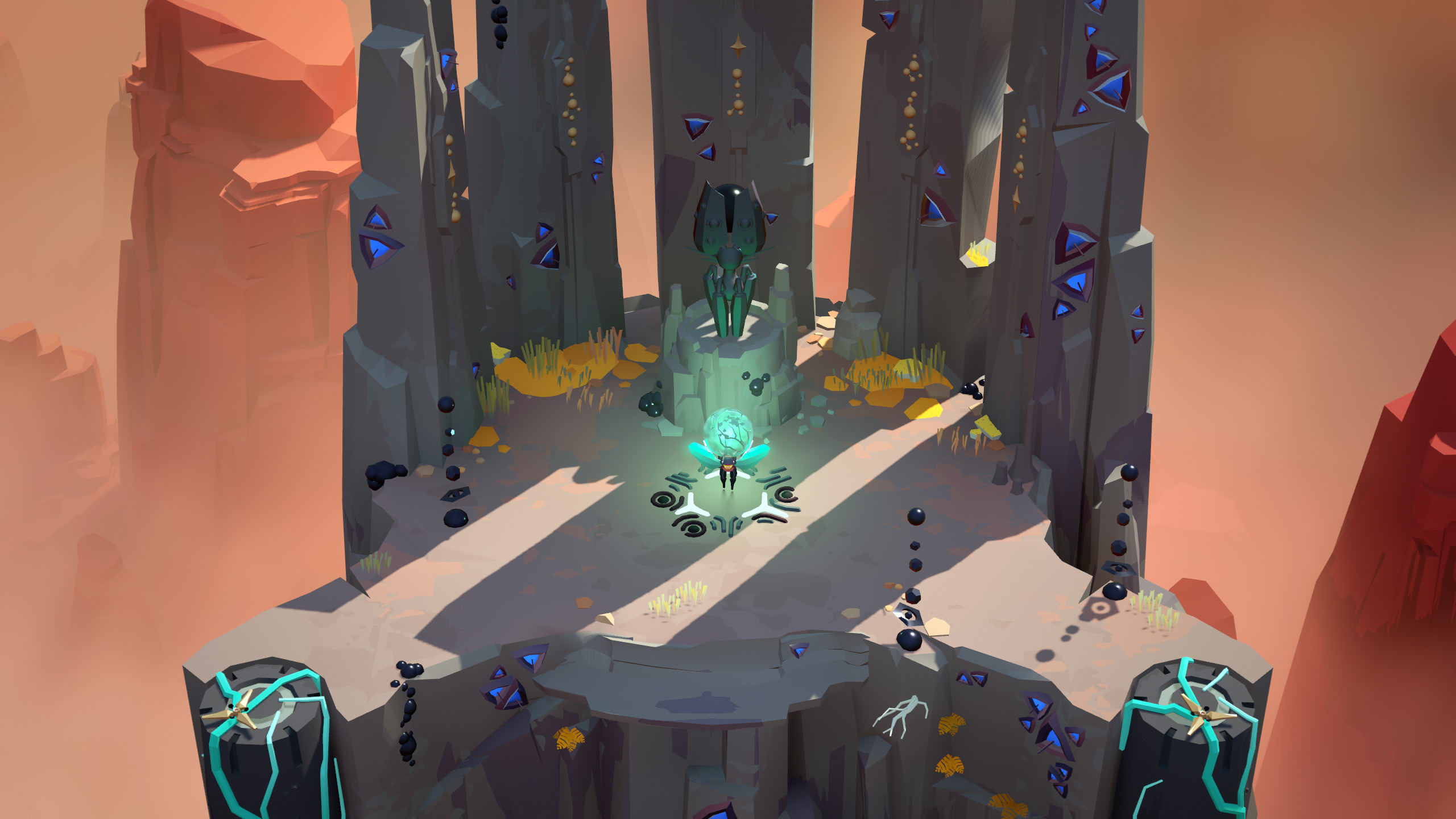
The wonderfully crafted soundtrack is complemented by aesthetically pleasing worlds featuring a diverse and colorful palette. Every aspect of Cocoon exudes creativity and style, much of which shines through in its contrasting environments. One moment you’re traversing a remote desert, and the next you’re in a water-filled landscape. The transition between worlds is also executed through some of the slickest animations I’ve seen in the realm of world-hopping.
As you progress, the game introduces a greater variety of environments. The unique imagery and shades of colors in each environment reinforce the subtle undertones of the overall journey. Both the environments and puzzles grow more complex as you advance. In Cocoon, the whole experience is greater than the sum of its individual parts. Each component, like its art style, is simple, but collectively they make Cocoon one of the most memorable games of 2023 — and that says a lot, considering all the games that have released this year.
Woven Worlds
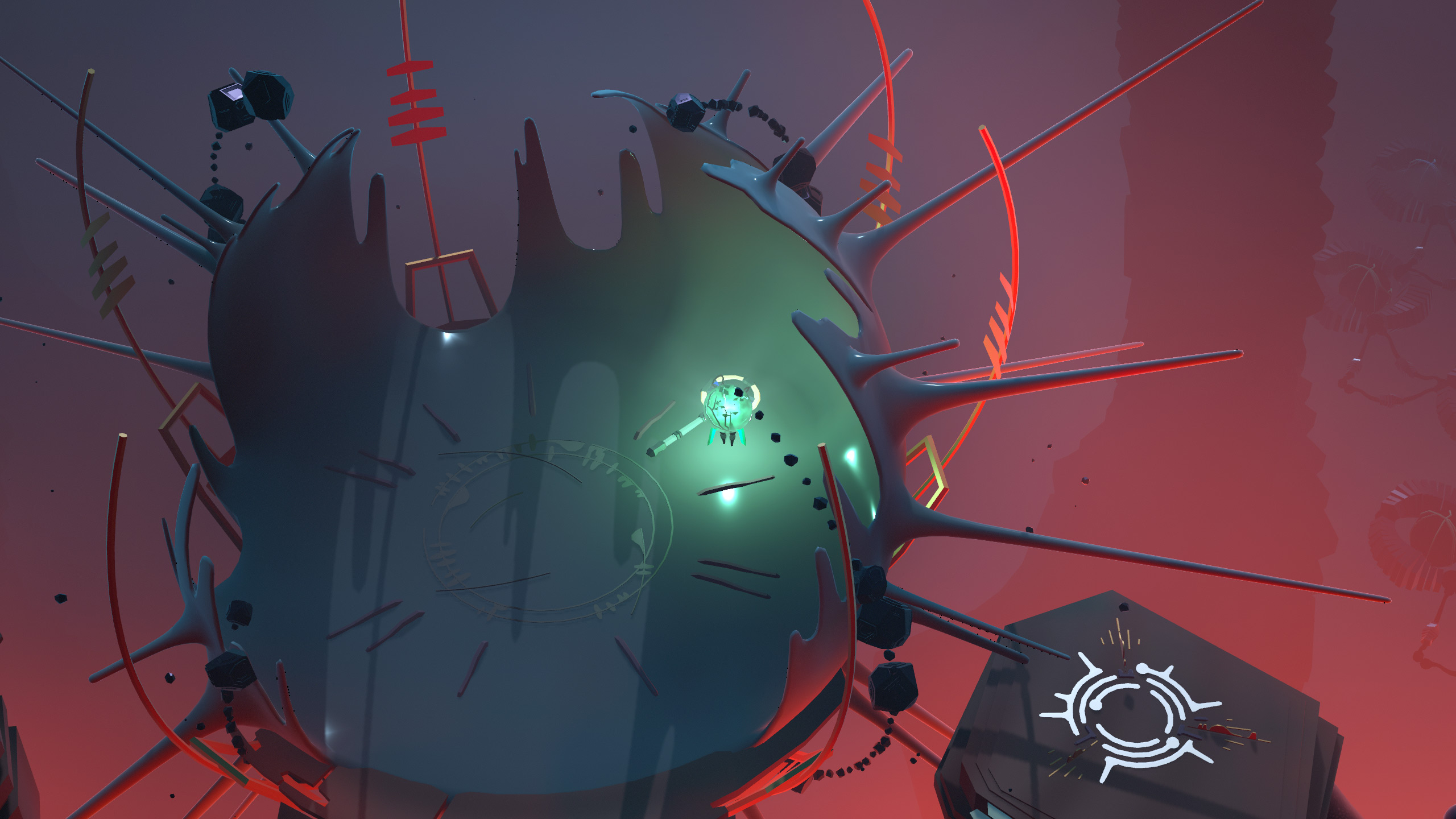
While I do have a lot of praise for Cocoon, the game isn’t a perfect experience. As I mentioned previously, each orb has its own guardian that serves as a boss fight. However, since Cocoon is fundamentally a puzzle game, these boss fights are puzzles in their own right. There isn’t combat in the traditional sense, although there are some combat-like mechanics akin to what you’d find in a basic 2D side-scrolling game. While overall these boss fights are enjoyable because they break up the routine of Cocoon, they’re also the main source of annoyance in the game. This is mainly because failing the mechanics requires you to restart the fight. This can become tedious as you work through the various phases of each boss. Depending on your patience and learning speed, these boss fights may feel like a real chore.
That being said, Cocoon is designed without a fail state. If you get caught by the guardian, you’ll only need a few seconds to walk back to the start of the encounter. More importantly, you won’t find yourself stuck in a puzzle needing to load a previous save. The game meticulously sets up safeguards, like moving platforms out of reach, to ensure you don’t get stuck. If you do find yourself stuck in Cocoon, you’ve probably overlooked something crucial. While many games today do have bugs that can make you stuck, my experience with Cocoon has been smooth and bug-free. It’s a well-polished game, which is praiseworthy (sadly) given the bugs in some recent releases.
The Brilliance of Simplicity
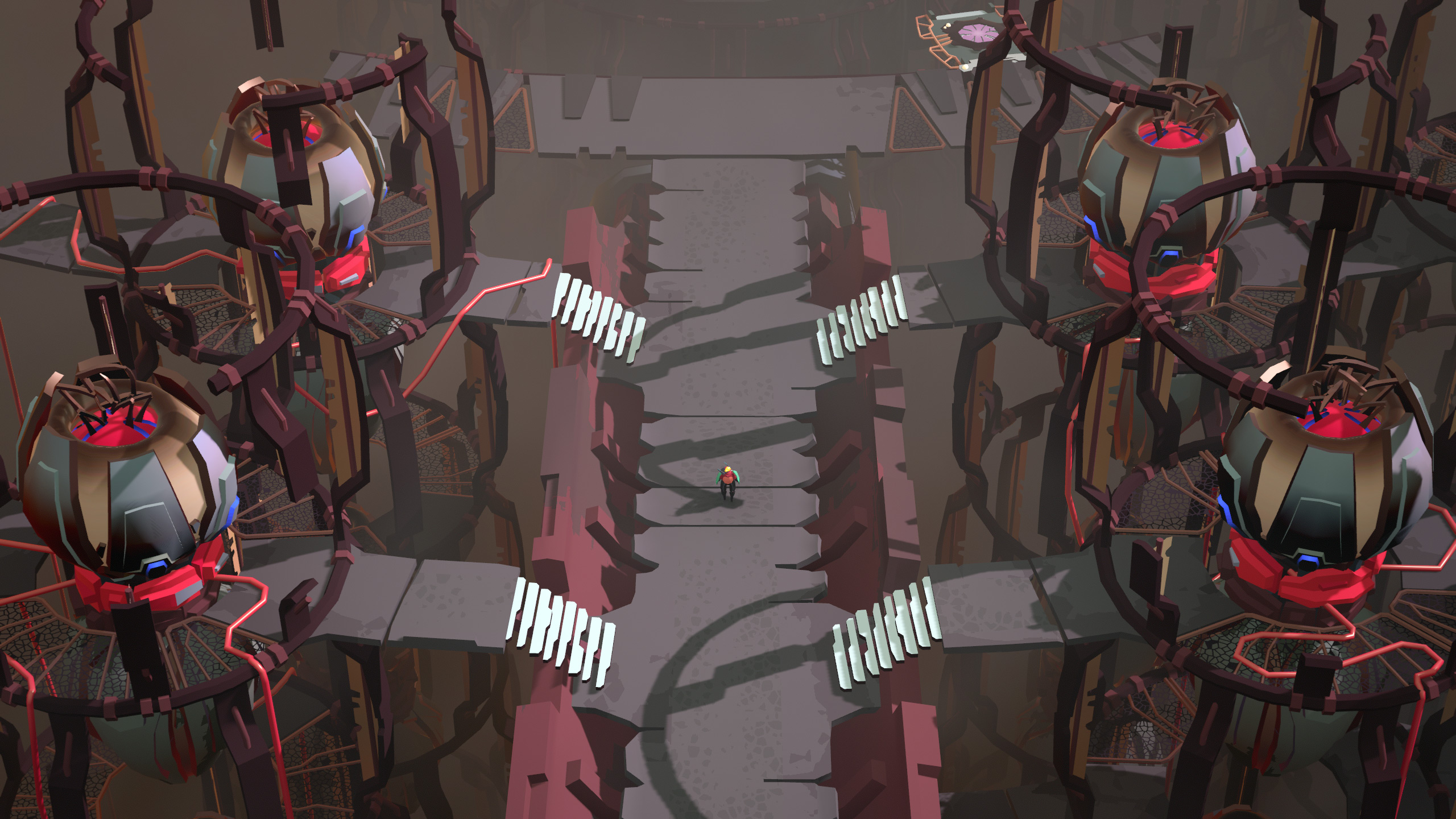
Completing Cocoon can take anywhere from five to eight hours, depending on how thoroughly you want to explore the worlds. If you want to be a completionist, you can free hidden ancestors, which translates to trophies or achievements. Of course, it also depends on how quickly you understand the puzzle mechanics as they become more complex as you progress. Still, the core mechanics of this game are basic in nature, considering you can only move and use a single button to initiate commands. The wonder lies in the different types of orbs you obtain through the adventure, and what they’re capable of doing.
To me, a puzzle game can only be considered successful if it makes the player feel as if they solved everything on their own. Cocoon offers this uniquely satisfying experience when everything clicks and you figure out what clever action you need to take to progress. Everything comes together brilliantly at the end as well, where it combines every little bit you’ve learned throughout the experience.
Cocoon defies the typical checkboxes that modern-day AAA developers aim to fulfill when developing a game. It doesn’t have memorable characters or a complex, moving story. There’s no debate here about boring, filler side quests or arguments about gender pronouns. Instead, the team at Geometric Interactive knew exactly the type of game it wanted to create and executed that to near perfection. Even if you aren’t a fan of puzzle games or video games in general, I’d say it’s an experience worth trying. Much like Journey before it over a decade ago, Cocoon stands tall by doing things its own way.
Cocoon was released on September 29, 2023 on PlayStation 4, PlayStation 5, Xbox One, Xbox Series X|S, Switch, and PC. This review is based on a purchased retail copy of the game on PC. While FullCleared does have affiliate partnerships, they do not influence our editorial content. We may, however, earn commissions for products purchased via affiliate links.
























